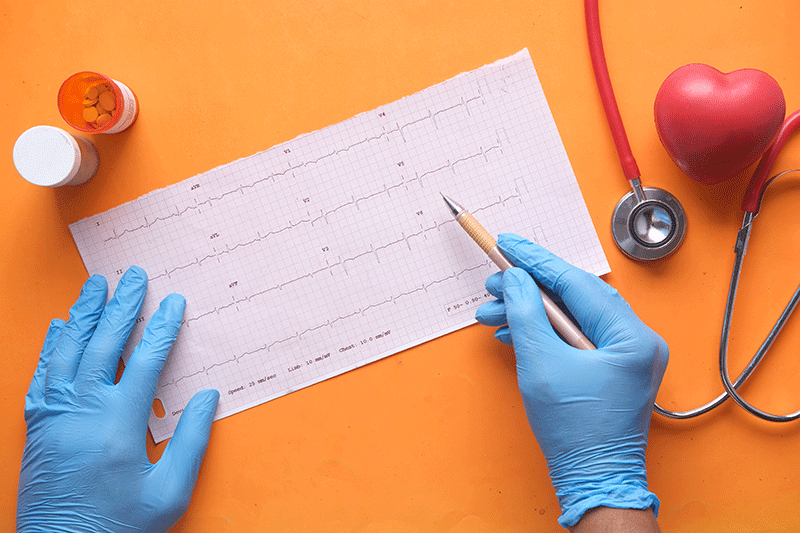5 Reasons Why You Should Care About your Cardiovascular Health
There are many reasons to care about your cardiovascular health. It is the most common form of organ disease in the world, affecting over 80% of adults. Cardiovascular diseases account for 17 million deaths each year, with 8 million of those from coronary heart disease alone. Here are just a few reasons you should care about your cardiovascular health:
* Cardiovascular disease is the leading cause of death around the world
* Cardensive vascular diseases account for 17 million deaths every year
* Cardiovascular issues can lead to severe disability and death
* Micro-vascular diseases can happen as a result of diabetes and obesity
* Cardiovascular disease affects over 80% of adults worldwide
Know the symptoms of vascular diseases and talk with your doctor if you have them
There are a variety of vascular diseases that affect the body, but one of the most severe is cerebrovascular disease, which can lead to stroke. Symptoms include sudden numbness or weakness on one side of the body, sudden confusion or trouble speaking, difficulty seeing in one or both eyes, and pain behind your eye. If you experience any of these symptoms, please talk with your doctor as soon as possible.
Ways to Improve Your Cardiovascular Health
1) Exercise. There are many ways to get your heart rate up and improve cardiovascular health, including cycling, weight lifting, walking, or running outside. Keep track of the time you spend on these types of exercises and try to aim for an hour each day. We’ve all heard that what matters most is consistency over quantity, so make sure to commit to making a change in your routine.
2) Quit Smoking. Smoking causes blood vessels to narrow which can lead to blockages and high blood pressure. The good news is that quitting smoking has immediate effects and increases oxygen-carrying capacity in the bloodstream. If you’re struggling with addiction, talk to your doctor about options like nicotine replacement therapy or medications 3) Eat Heart-Healthy Foods. Foods rich in potassium, omega-3 fatty acids (found in fatty fish like salmon), magnesium, and vitamins C and E are just some of the nutrients found in fruits, vegetables, whole grains, legumes, and nuts that promote cardiovascular health. Make sure there is plenty of dark leafy greens on your plate 4) Drink Alcohol In Moderation.
Common Types of Vascular Disease
Arteries and veins (blood vessels) are our bodies’ natural highways that circulate blood through arms, legs, and internal organs. Vascular disease occurs when an abnormal condition affects the blood vessels. This can often lead to severe disability and death.
There are a few different types of vascular disease, including cerebrovascular disease, peripheral vascular disease, and Buerger’s Disease. Cerebrovascular disease is caused by injury to the arteries supplying the brain with oxygenated blood. Peripheral vascular disease is caused by obstruction or narrowing of major arteries in the extremities from a plaque or other diseases like diabetes. In cases where this happens, a surgeon may need to perform bypass surgery or angioplasty. Buerger’s Disease is caused by thrombosis in one of the leg veins from damage done to the vein wall from repeated trauma and inflammation due to constriction. Treatment usually involves anti-coagulants, but sometimes surgery is necessary too.
Ultimately, many cases of vascular disease can be prevented if people live healthier lifestyles!
Peripheral artery disease
PAD affects 6 million people in the United States, but many cases go undiagnosed because symptoms are often mistaken for other conditions like arthritis or carpal tunnel syndrome. If you experience any of these symptoms- especially if you’re over 45- talk to your doctor about peripheral artery disease (PAD). You can also call 1-800-7ASK-LRC, a free information hotline sponsored by the National Heart, Lung, and Blood Institute and drug company Abbott Laboratories.
Other types of vascular disease include peripheral artery disease (PAD) and varicose veins. PAD occurs when an abnormal condition affects the blood vessels that carry oxygenated blood from the heart and lungs to all parts of the body; varicose veins occur when valves inside veins fail and cause blood to pool in one area.
Peripheral neuropathy
Microvascular disease is a type of vascular disease that affects the small blood vessels. This can lead to peripheral neuropathy, which is pain or numbness in the hands and feet. Patients typically notice this when they wake up in the morning or after periods of inactivity. Patients with peripheral neuropathy usually suffer from chronic leg pain, cramping, and muscle wasting. Burgers disease is a rare form of arteritis, which causes inflammation and thickening of artery walls often near the ankle, elbow, or wrist.
Atherosclerosis
Arteries and veins (blood vessels) are our bodies’ natural highways that circulate blood through arms, legs, and internal organs. Vascular disease occurs when an abnormal condition affects the blood vessels. This can often lead to severe disability and death. Atherosclerosis is one type of vascular disease that occurs when cholesterol is deposited in the walls of the arteries and causes them to narrow or harden. This condition can lead to cardiovascular diseases such as heart attack or stroke.


Leave a Comment